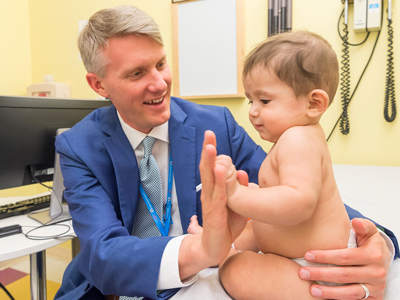- Doctors & Departments
-
Conditions & Advice
- Overview
- Conditions and Symptoms
- Symptom Checker
- Parent Resources
- The Connection Journey
- Calm A Crying Baby
- Sports Articles
- Dosage Tables
- Baby Guide
-
Your Visit
- Overview
- Prepare for Your Visit
- Your Overnight Stay
- Send a Cheer Card
- Family and Patient Resources
- Patient Cost Estimate
- Insurance and Financial Resources
- Online Bill Pay
- Medical Records
- Policies and Procedures
- We Ask Because We Care
Click to find the locations nearest youFind locations by region
See all locations -
Community
- Overview
- Addressing the Youth Mental Health Crisis
- Calendar of Events
- Child Health Advocacy
- Community Health
- Community Partners
- Corporate Relations
- Global Health
- Patient Advocacy
- Patient Stories
- Pediatric Affiliations
- Support Children’s Colorado
- Specialty Outreach Clinics
Your Support Matters
Upcoming Events
Child Life 101
Wednesday, June 12, 2024Join us to learn about the work of a child life specialist, including...
-
Research & Innovation
- Overview
- Pediatric Clinical Trials
- Q: Pediatric Health Advances
- Discoveries and Milestones
- Training and Internships
- Academic Affiliation
- Investigator Resources
- Funding Opportunities
- Center For Innovation
- Support Our Research
- Research Areas

It starts with a Q:
For the latest cutting-edge research, innovative collaborations and remarkable discoveries in child health, read stories from across all our areas of study in Q: Advances and Answers in Pediatric Health.


Nocturnal Enuresis and Bedwetting (S1:E32)
Most young patients will be treated for nocturnal enuresis, also known as nighttime bedwetting, around 7 years old. These children are physically older, but more importantly, they are also maturing socially and emotionally. Sleepovers at friends' houses become more common around this age and managing involuntary urination becomes more important.
PCPs are often tasked with helping families get to the root of why a child is urinating in their sleep. The causes of nocturnal enuresis can be multifaceted and complex, but diagnosis and treatment can be accomplished in the PCP office in the majority of cases.
Listen to a pediatric urology expert discuss nighttime bedwetting and involuntary urination management
In today's episode of Charting Pediatrics, we discuss the management of and treatment options for nocturnal enuresis, or nighttime bed-wetting. Joining us is pediatric urology nurse practitioner, Marguerite Korber, NP, who runs many of the enuresis clinics at Children's Hospital Colorado.
As Marguerite explains, treatment plans depend on the child's functional bladder capacity, the existence of conditions such as diabetes or urinary tract infections (UTIs), whether the child is behaviorally ready to address nighttime bedwetting and more. The family must also be ready to commit to treatment, and she explains how to get parents to buy-in to a thoughtful therapeutic treatment program.
In this episode, our expert discusses:
- When a PCP should make a formal diagnosis of nocturnal enuresis.
- Why giving the family a proactive, therapeutic treatment plan for nocturnal enuresis is so helpful.
- The reasons for kids' bedwetting, which may differ according to whether the child has primary or secondary nocturnal enuresis.
- The initial work-up PCPs can perform before making a referral to urology and the exact criteria to evaluate.
- The most important aspects to focus on in a nocturnal enuresis physical exam, including the abdominal exam, lumbar spine evaluation, neurological evaluation and the urethral opening evaluation.
- What role constipation plays when a child pees in their sleep and how to determine if it is a contributing factor.
- Nighttime bedwetting management options and what parents need to know up front, including how to effectively implement the use of alarm therapy.
- Which criteria must be met for pharmacologic therapy of nocturnal enuresis.
- Options for managing chronic nocturnal enuresis.
- Alternative treatments PCPs can suggest to families when cost is a barrier to management.
- Why nocturnal enuresis is a condition that requires whole-family treatment and how to help parents manage their frustration.
Treating nocturnal enuresis at Children's Colorado
Children who struggle with nighttime bed-wetting are treated through our Bedwetting and Enuresis (BE) Program, which was created specifically for children with wetting issues. Our pediatric urology experts educate families on the cause of the condition, suggest behavioral modifications and share techniques families can use to treat involuntary urination. Refer a patient to Children's Colorado.



 720-777-0123
720-777-0123






